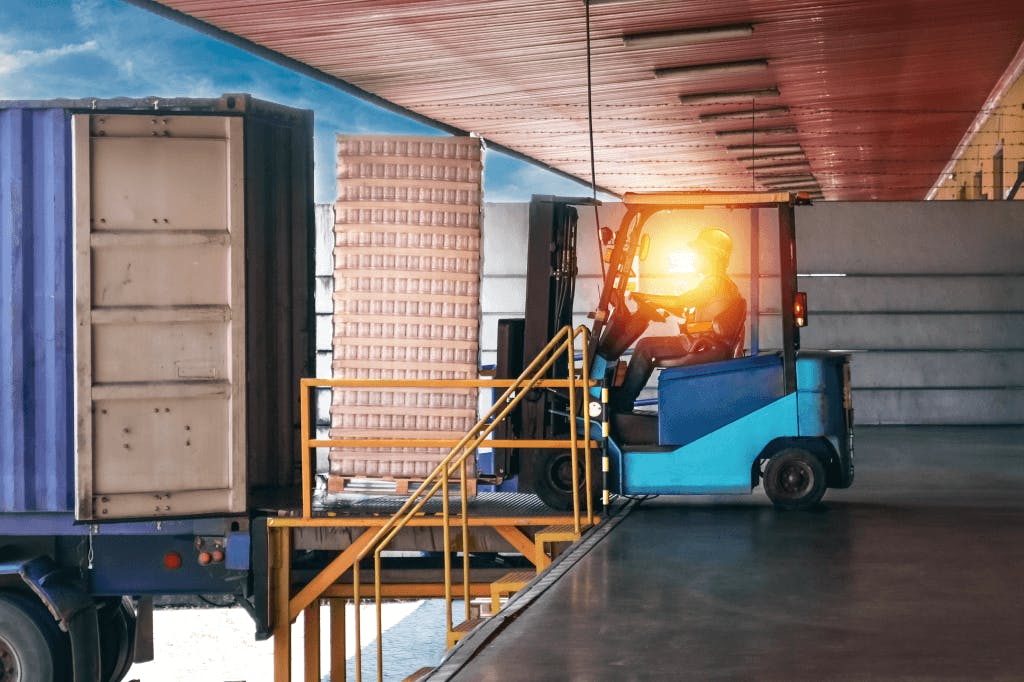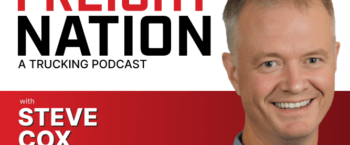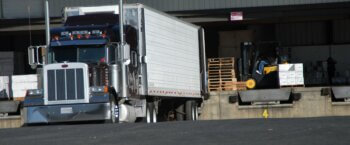7 Ways to Build a Larger Freight Broker Book of Business

What are you waiting for?
Find capacity and increase margins starting now.
No matter how well you operate your freight brokerage business, you should expect that there will be turnover. Shippers and trucking companies go out of business. Independent owner operators retire. Customers switch to other brokers. And, it’s a competitive business. With average margins below 15%, there’s a lot of competition for customers.
All of this means that you need to be looking for new freight broker business opportunities. To build a sustainable business, you need a plan for replacing any business you lose. If you want to earn more money, you need to constantly be thinking about how to grow your freight broker book of business.
What is a book of business for a freight broker? It’s a list of clients and customers that you do business with. Keeping people on that list happy with your services and adding new clients is essential to success.
Popular strategies for building a freight broker book of business
Brokers have options for how to build their book of business. You can choose to be a full-service broker or specialize in certain industries or lanes.
Full-service
A full-service broker should be able to handle any type of shipping. They can handle cargo no matter where or how it needs to go. Being a central source for all your customers’ shipping and freight needs means you can service a larger number of customers. The longer you work with someone, the better you get to know their business, and the better you can anticipate their needs to serve them better. Solid relationships help keep them coming back to you for years to come.
There are a couple of challenges for full-service brokers. If your freight broker book of business gets too large, it can be challenging to learn and handle the nuances of each account efficiently. At the same time, there’s also the concern about taking on too few customers. If one of your large accounts leaves, your revenue can take a big hit.
By industry
Some brokers focus their business on specific industries. This allows you to become highly knowledgeable about an industry, so you can use that knowledge across a broad number of shippers and carriers to grow your business.
This can be a competitive advantage, especially in industries that require special handling, such as produce, oversize waste, or hazardous cargo. You can become the go-to broker for solving customer problems quickly, matching carriers with loads.
The downside to this type of specialization is that in some industries, you may have to deal with seasonal impacts.
By lane type
Other brokers specialize in developing a core group of shippers and carriers that work in specific lanes instead of looking for broad matches. For example, popular lanes include San Francisco to Los Angeles or Atlanta to Miami. Getting to know the shippers and carriers intimately over time and the nuances of specific lanes, destinations, distribution centers, and warehouses can shortcut much of the process and create significant efficiencies.
The challenge here is volatility. If you choose lanes with lower volume, there are fewer opportunities to build a book of business. It may not always be as easy to identify new customers without some help.

7 ways freight brokers can grow a book of business
Start with existing customers.
One of the easiest ways to grow your freight broker book of business is to start with your existing customers. You already have a history and relationship with them. If you have served them well, they might be open to increasing their volume.
Staying close to your customers can also give you an early indication of additional freight broker business opportunities, such as changes in pipelines or increased consumer demand. It’s a good idea to have regular contact with your core customers to discuss future or new business needs.
Here’s a tip. Set up Google Alerts for your key accounts. It’s free. When there’s major news about one of your accounts, you’ll get an alert with a link. This information can give you a reason to reconnect and offer an opportunity to expand your business.
Reactivating dormant customers is also a good growth strategy. Search your book of business for accounts that aren’t currently active and get back in touch. If there was a problem, you want to know about it so you can resolve any issues and gain back their trust.
Often, the reason someone stops using your services is that a key contact left the company. By reaching out, you can connect with the new contact and let them know about what you do. At the same time, find out where the previous person went, so you can see if they need your services.
Prospect new customers.
Like it or not, you’re going to have to drum up and nurture new customers if you want to grow your freight broker book of business.
As a freight brokerage gets established, it’s not uncommon for them to forget about dedicating time to prospecting. Schedule time each week to source and contact potential customers. While cold calling and emailing work sometimes, the best strategy is to warm up prospects before you reach out. For example, you can search online and find out a bit about them so you can have a more productive conversation.
Here are a few other strategies to consider to find new freight broker business opportunities:
- Use LinkedIn to research companies that might need your services and send direct messages.
- Stay tuned in to industry and company news. When new companies emerge, open new distribution centers, or launch new products, it could be an opportunity.
- Search carrier directories and digital freight matching tools.
- Search the Federal Motor Carrier Safety Administration (FMCSA) database of carriers.
Leverage your existing carrier network.
Besides your shippers, you can also tap into your carrier network. The more business you do with them, the better your relationships and future opportunities. For example, knowing their logistics needs and backhaul lanes helps you prospect new customers to keep carrier trucks full. When you do that, you can build loyalty quickly.

Build a referral network.
Referral networks may not be a predictable source of revenue, but they can pay off in a big way. Contact customers you have good relationships with and proactively ask if they know someone else that could use your services. You might even ask them to put in a good word for you.
This makes cold calling much easier because referrals give an implied endorsement from a colleague. Endorsements establish trust and credibility.
Speak to your customers’ customers.
Besides referrals, another good way to prospect is to reach out to the customers of your customers. Let’s say you handle the shipping of raw materials from one company to another. There’s a pretty good chance they are turning these materials into products and shipping them somewhere else. Maybe you can handle those manufacturer shipping needs, too.
Don’t forget to look at your customer’s competitors as well.
Use a broker load board.
With the Truckstop Load Board for Brokers, you can find a high volume of vetted and trusted carriers with available trucks in one centralized platform.
Features include Book It Now, which helps you build your carrier network for faster load coverage by giving your preferred carriers the ability to book your loads instantly, even after business hours. This eliminates the need for back-and-forth phone calls or email negotiations. You can access Predictive Carrier Sourcing, which produces granular data and deeper searches allowing you to uncover hidden capacity for special loads and difficult lanes.
Sign up for the Truckstop Load Board today and build a stronger book of business.

Find out how our platform gives you the visibility you need to get more done.
Get helpful content delivered to your inbox.
Schedule a demo.
Find out how our platform gives you the visibility you need to get more done.





